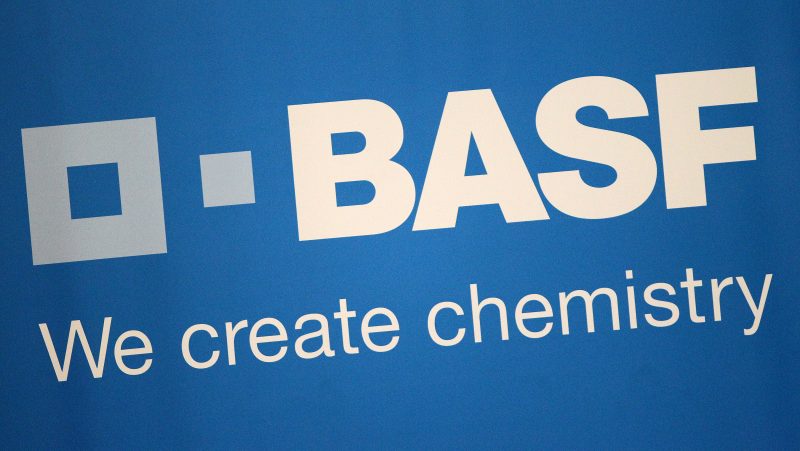BASF annual profits tumble as car woes, trade wars bite
On top of the major headwinds from the car industry and global trade, BASF also had to contend with the impact of low water on the Rhine river (Daniel ROLAND)
Frankfurt am Main (AFP) – German chemicals giant BASF reported Tuesday its annual profits slumped in 2018, with knock-on effects from major customer sectors and geopolitical headwinds including trade conflicts taking the business off the boil.
Net profit at the group fell 22.6 percent, to 4.7 billion euros ($5.3 billion), short of expectations from analysts surveyed by Factset.
“2018 was a year characterised by difficult global economic and geopolitical developments and trade conflicts,” the Ludwigshafen-based firm said in a statement.
“Slowdown in key markets, especially the automotive industry” had weighed on BASF, the company added, the latest sign of the wider impact of car production bottlenecks linked to new emissions tests in Europe.
Meanwhile demand from China also fell, in part because of Beijing’s trade showdown with Washington, BASF said.
Operating, or underlying profit at the group fell 20.5 percent, to 7.6 billion euros, although the company was able to increase revenues 2.4 percent, to 62.7 billion — slightly higher than forecast by analysts.
On top of the major headwinds from the car industry and global trade, BASF also had to contend with the impact of low water on the Rhine river.
“For much of the third and fourth quarter, it was nearly impossible to receive deliveries of raw materials via ship” in Ludwigshafen after a hot and dry summer in Germany.
In addition, an important plant at the sprawling headquarters complex only resumed operation in the second quarter following a fire in October 2017.
And newly-acquired agrichemical businesses bought from Bayer braked performance, as they joined the group in the second half of the year — after most seed providers make the bulk of their profits.
“We are tackling these challenges,” chief executive Martin Brudermueller said, promising a “transitional year to emerge even stronger” in 2019.
Looking ahead to the new year, the group aims for “slight” sales growth and to “slightly increase” operating profit before special items, although headwinds will continue to bite in the first half.
The group would have to find cash for “noticeably higher” special items than the 320 million euros booked in 2018 as it presses ahead with restructuring plans, Brudermueller said.
Nevertheless, BASF said it would offer shareholders an increased dividend for last year of 3.20 euros per share — up 10 euro cents on 2017.
Disclaimer: This story is published from a syndicated feed. Siliconeer does not assume any liability for the above story. Validity of the above story is for 7 Days from original date of publishing. Content copyright AFP.


